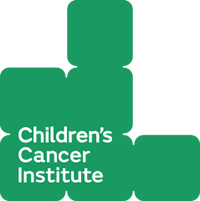Dr Cara Toscan, Prof Richard Lock
Applications accepted all year round
Competition Funded PhD Project (Students Worldwide)
About the Project
Acute lymphoblastic leukaemia (ALL) is the most common paediatric cancer, which can be broadly classified into B-cell precursor ALL (BCP-ALL) and T-cell ALL (T-ALL). Although T-ALL accounts for only 15-20% of paediatric ALL cases, relapse frequently occurs and is often fatal. New treatment options for relapsed/refractory T-ALL are urgently required.
PR-104 is a DNA alkylating pre-prodrug activated under hypoxia by one-electron reductases, but also under normoxia by the two-electron reductase, aldo-keto reductase 1C3 (AKR1C3). Previous studies have shown that PR-104 was highly effective against T-ALL ex vivo and in vivo. We have recently shown that the enhanced efficacy of PR-104 against T-ALL compared with BCP-ALL, was due to T-ALL expressing significantly higher levels of AKR1C3 than BCP-ALL. These findings have led to a clinical trial in relapsed/refractory T-ALL.
Early T-cell precursor ALL (ETP-ALL) is a distinct form of T-ALL, which has an exceptionally poor prognosis. ETP-ALL show similar AKR1C3 expression and activity to T-ALL, however ETP-ALL exhibit PR-104 resistance similar to BCP-ALL. In order to identify established drugs that can overcome PR-104 resistance in ETP-ALL, we performed a high throughput screen of 96-FDA approved anticancer drugs combined with PR-104 against two ETP-ALL xenografts ex vivo. Clofarabine, a purine nucleoside antimetabolite, was identified as the lead PR-104 sensitiser, and was highly synergistic when combined with PR-104 in a chemoresistant ETP-ALL xenograft ex vivo and in vivo. The combination of PR-104 and clofarabine warrants further consideration for the treatment of ETP-ALL, as well as other ALL subtypes.
This project will extend on from these preliminary results, aspects include:
1. Investigate the efficacy of PR-104/clofarabine against a range of paediatric ALL subtypes. Preliminary results show that clofarabine further potentates the effect of PR-104 in T-ALL xenografts, and the combination is also effective in BCP-ALL xenografts. This study will includecell culture and animal studies.
2. Determine how clofarabine reverses PR-104 resistance in ETP-ALL. The major form of cytotoxicity caused by PR-104 is DNA adducts, however these adducts can be repaired. We will determine the effect that clofarabine has on PR-104 induced DNA adducts. Further studies will include RNAseq of single agent and combination treated ETP-ALL xenografts, in an unbiased approach to understand the mechanism of synergy between these two drugs.
3. Determine if clofarabine can reverse acquired PR-104 resistance. Patients often acquire resistance to chemotherapy, which makes relapsed disease more difficult to treat. We have treated a PR-104 sensitive T-ALL xenograft in vivo with multiple rounds of PR-104 until resistance developed. This study will focus on the mechanism of acquired resistance to PR-104 and whether clofarabine is able to overcome this.
Funding Notes
PhD students at Children’s Cancer Institute are enrolled through the UNSW Faculty of Medicine, School of Women’s and Children’s Health, Centre for Childhood Cancer Research (Program code 1825, Childhood Cancer).
References
Students must obtain a scholarship that will cover living expenses and tuition fees.
For information on the UNSW application process (including scholarships) visit https://research.unsw.edu.au/how-apply-enrol-research-degree.
Additional support
A top-up supplementary award of $6,000 per annum to students who have been awarded a competitive scholarship. This will be awarded to students where the scholarship is equivalent to an Australian Postgraduate Award (RPA) or University Postgraduate Award (UIPA).
The Josee Hilton PhD Excellence Award is a competitive top up scholarship of $10,000 per annum offered to our top ranking new PhD student annually.

 Continue with Facebook
Continue with Facebook

